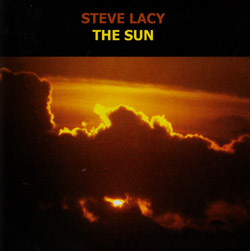
Four sessions of music mostly against the Vietnam War - all featuring Steve Lacy and Irene Aebi, in sextet, trio, and quintet with associates including Enrico Rava, Karl Berger, Kent Carter, Richard Tietelbaum, &c.
Out of Stock
Quantity in Basket: None
Log In to use our Wish List
Shipping Weight: 4.00 units
Sample The Album:
Steve Lacy-soprano saxophone
Irene Aebi-voice
Kent Carter-doublebass
Enrico Rava-trumpet
Karl Berger-vibraphone
Aldo Romano-drum set
Richard Teitelbaum-synthesizer
Steve Potts-alto saxophone
Oliver Johnson-drum set
Click an artist name above to see in-stock items for that artist.
UPC: 5030243502226
Label: Emanem
Catalog ID: 5022
Squidco Product Code: 15768
Format: CD
Condition: New
Released: 2011
Country: Great Britain
Packaging: Cardstock Gatefold Sleeve 3 panels with Booklet
Recorded in Hamburg on February 12th-18th, 1968. Recorded in July 1968 in Roma. Recorded on August 31st, 1967 in New York City. Recorded on January 26th, 1973 in Zurich.
"Four sessions of music mostly against the Vietnam War - all featuring Steve Lacy and Irene Aebi. A previously unissued 1968 presentation of a complex text by Buckminster Fuller intoned by Aebi - a veritable 5-minute tour de force that presages rap. Plus a 7-minute instrumental head arrangement or graphic score by the quintet with Enrico Rava, Karl Berger, Kent Carter & Aldo Romano. Also from 1968, a trio session with Richard Teitelbaum containing two versions of Lacy's first song, 'The Way', and two duo improvisations, which feature some very adventurous playing on saxophone and synthesizer. This was previously only issued in 2000 on the very limited edition Roaratorio LP 01. (3) The same trio performing the previously unissued 'Chinese Food' in 1967, with Aebi reading 2500-year old anti-war texts by Lao Tsu. Finally the powerful 1973 four-part anti-war suite, 'The Woe', with Steve Potts, Kent Carter & Oliver Johnson."-Emanem
Excerpts from sleeve notes:
"It is a disturbing fact that most of the major disputes throughout history have been settled by physical fighting involving killing. Have we really risen much above the rest of the animal world? On the contrary, many animals do not kill members of their own species even though they may fight. It used to be that battles were fought in a remote location between two armies that comprised a small percentage of the population. But let us not forget that military fighters, whether voluntary, conscripted or press-ganged, are human beings too. This mode of warfare culminated in the First World War, when millions of soldiers were killed in a puerile macho attempt to solve the differences between branches of the family that supplied most of the so-called royalty for European countries.
That cataclysm also saw the introduction of one of the most horrendous inventions of the 20th century, namely aerial bombing. This continued in 'peace-time' with the 1924 bombing of Iraqi villages and other rebellious parts of the British Empire. This barbaric practice reached its first nadir in the Nazi destruction of Guernica in the Spanish Civil War. Everyone, not just the military, became a potential casualty in the Second World War with its long list of cities devastated from the air - Coventry, London, Berlin, Dresden, Tokyo, etc, etc - culminating in the atomic bombing of Hiroshima and Nagasaki, which had to be hastened when it was realised that the Japanese were already making approaches to surrender.
Perhaps the greatest density of aerial bombing occurred during the Vietnam War. People who subsequently flew over the remains of that country have reported that there are unbelievable numbers of bomb craters everywhere. That abortive invasion also involved the greatest use of chemical warfare, mainly Agent Orange and napalm which indiscriminately deformed people, animals and plants. It is therefore not surprising that millions of people throughout the world protested against this wholesale sub-bestial butchery.
Steve Lacy and Irene Aebi were amongst the protesters, their first musical protest being CHINESE FOOD using words by a Chinese writer who saw the futility of war some 2500 years previously.
"We were doing protest music about the Vietnam War at that time. Everybody was saying, 'Johnson. Baby killer' and all that. So we were in WBAI and Irene was hurling these Lao Tsu texts about politics and weapons and things like that. It was like political music. The name of the piece we were doing was CHINESE FOOD. Texts from Lao Tzu, which illustrated the absurdity of war and weapons and things like that, were chosen.Steve Lacy (1997 - interview with Lee & Maria Friedlander)" [...]-Martin Davidson
Artist Biographies
• Show Bio for Steve Lacy "Steve Lacy (July 23, 1934 - June 4, 2004), born Steven Norman Lackritz in New York City, was a jazz saxophonist and composer recognized as one of the important players of soprano saxophone. Coming to prominence in the 1950s as a progressive dixieland musician, Lacy went on to a long and prolific career. He worked extensively in experimental jazz and to a lesser extent in free improvisation, but Lacy's music was typically melodic and tightly-structured. Lacy also became a highly distinctive composer, with compositions often built out of little more than a single questioning phrase, repeated several times. The music of Thelonious Monk became a permanent part of Lacy's repertoire after a stint in the pianist's band, with Monk's songs appearing on virtually every Lacy album and concert program; Lacy often partnered with trombonist Roswell Rudd in exploring Monk's work. Beyond Monk, Lacy performed the work of jazz composers such as Charles Mingus, Duke Ellington and Herbie Nichols; unlike many jazz musicians he rarely played standard popular or show tunes. Lacy began his career at sixteen playing Dixieland music with much older musicians such as Henry "Red" Allen, Pee Wee Russell, George "Pops" Foster and Zutty Singleton and then with Kansas City jazz players like Buck Clayton, Dicky Wells, and Jimmy Rushing. He then became involved with the avant-garde, performing on Jazz Advance (1956), the debut album of Cecil Taylor,:55 and appearing with Taylor's groundbreaking quartet at the 1957 Newport Jazz Festival; he also made a notable appearance on an early Gil Evans album. His most enduring relationship, however, was with the music of Thelonious Monk: he recorded the first album to feature only Monk compositions (Reflections, Prestige, 1958) and briefly played in Monk's band in 1960:241 and later on Monk's Big Band and Quartet in Concert album (Columbia, 1963). Lacy's first visit to Europe came in 1965, with a visit to Copenhagen in the company of Kenny Drew; he went to Italy and formed a quartet with Italian trumpeter Enrico Rava and the South African musicians Johnny Dyani and Louis Moholo (their visit to Buenos Aires is documented on The Forest and the Zoo, ESP, 1967). After a brief return to New York, he returned to Italy, then in 1970 moved to Paris, where he lived until the last two years of his life. He became a widely respected figure on the European jazz scene, though he remained less well known in the U.S. The core of Lacy's activities from the 1970s to the 1990s was his sextet: his wife, singer/violinist Irene Aebi,:272 soprano/alto saxophonist Steve Potts, pianist Bobby Few, bassist Jean-Jacques Avenel, and drummer Oliver Johnson (later John Betsch). Sometimes this group was scaled up to a large ensemble (e.g. Vespers, Soul Note, 1993, which added Ricky Ford on tenor sax and Tom Varner on French horn), sometimes pared down to a quartet, trio, or even a two-saxophone duo. He played duos with pianist Eric Watson. Lacy also, beginning in the 1970s, became a specialist in solo saxophone; he ranks with Sonny Rollins, Anthony Braxton, Evan Parker, and Lol Coxhill in the development of this demanding form of improvisation. Lacy was interested in all the arts: the visual arts and poetry in particular became important sources for him. Collaborating with painters and dancers in multimedia projects, he made musical settings of his favourite writers: Robert Creeley, Samuel Beckett, Tom Raworth, Taslima Nasrin, Herman Melville, Brion Gysin and other Beat writers, including settings for the Tao Te Ching and haiku poetry. As Creeley noted in the Poetry Project Newsletter, "There's no way simply to make clear how particular Steve Lacy was to poets or how much he can now teach them by fact of his own practice and example. No one was ever more generous or perceptive." In 1992, he was the recipient of a MacArthur Fellowship (nicknamed the "genius grant"). He also collaborated with a wide range of musicians, from traditional jazz to the avant-garde to contemporary classical music. Outside of his regular sextet, his most regular collaborator was pianist Mal Waldron,:244-245 with whom he recorded a number of duet albums (notably Sempre Amore, a collection of Ellington/Strayhorn material, Soul Note, 1987). Lacy played his 'farewell concerts to Europe' in Belgium, in duo and solo, for a small but motivated public. This happened in Brussels, Antwerp, Ghent, Bruge and Bergen. This recollection is published by Naked Music. In Ghent he played with the classical violinist Mikhail Bezverkhni, winner of Queen Elisabeth Concours. He returned to the United States in 2002, where he began teaching at the New England Conservatory of Music in Boston, Massachusetts. One of his last public performances was in front of 25,000 people at the close of a peace rally on Boston Common in March 2003, shortly before the US-led invasion of Iraq. After Lacy was diagnosed with cancer in August 2003, he continued playing and teaching until weeks before his death on June 4, 2004 at the age of 69." ^ Hide Bio for Steve Lacy • Show Bio for Irene Aebi Irene Aebi (born July 27, 1939 in Zurich, Switzerland) is a Swiss singer, violinist and cellist. She is noted for her work with jazz saxophonist Steve Lacy, her husband, from the 1960s to his death in 2004. Initially a classically trained instrumentalist, she only began to sing at Lacy's request. In a review of a 1999 concert, critic Frank Rubolino describes Aebi as possessing a "brusque, forceful style of singing". ^ Hide Bio for Irene Aebi • Show Bio for Kent Carter "Kent Carter (born June 14, 1939 in Hanover, New Hampshire, USA. Carter studied several instruments before settling on bass. In the late 50s-early 60s, he studied at Berklee College Of Music, played with Lowell Davidson, and in New York with Jazz Composers Orchestra. From the mid-60s he was in Europe with artists including as Barry Altschul, Derek Bailey, Han Bennink, Carla Bley, Paul Bley, Bobby Bradford, Don Cherry, Steve Lacy, Michael Mantler, Enrico Rava, Max Roach, Roswell Rudd and Mal Waldron. During the 70s he continued his association with Lacy, was with John Stevens' Spontaneous Music Ensemble, TOK, a trio with Takashi Kako and Oliver Johnson, and formed his own trio with Carlos Zingaro and François Dreno. By the 80s, Carter had relocated to France, teaching at the Beaux Art School, Angouleme, and with his wife forming MAD, a music, arts and dance studio. He worked in Detail, with Frode Gjerstad and Stevens, Project, with Karl Berger, Claude Bernard, Klaus Kugel, Charlie Mariano and Albrecht Maurer, and Voyage, with Beñat Achiary and David Holmes. Carter has also played with Billy Bang, Petras Vysniauskas, Theo Jorgensmann, Andreas Willers and Eckard Koltermann. Carter composes for theatre and film, and performs internationally." ^ Hide Bio for Kent Carter • Show Bio for Enrico Rava "Enrico Rava (born 20 August 1939), is an Italian jazz trumpeter. He started on trombone, then changed to the trumpet after hearing Miles Davis. His first commercial work was as a member of Gato Barbieri's Italian quintet in the mid-1960s; in the late 1960s he was a member of Steve Lacy's group. In 1967, Rava moved to New York City and, one month later, became a member of the group Gas Mask, which had one album released on Tonsil Records in 1970. In the 1970s and 1980s, he worked with John Abercrombie, Andrea Centazzo, Gil Evans, Richard Galliano, Joe Henderson, Joe Lovano, Pat Metheny, Michel Petrucciani, Cecil Taylor, and Miroslav Vitouš. He has also worked with Carla Bley, Lee Konitz, Jeanne Lee, Paul Motian, and Roswell Rudd. Chiefly an exponent of bebop jazz, Rava has also played in avant-garde jazz settings. With trumpeter Paolo Fresu, Rava recorded four albums on the influence of Bix Beiderbecke, Louis Armstrong, Chet Baker, and Miles Davis. Also of note are his albums Rava, L'Opera Va' and Carmen, which are his interpretations of operatic arias and overtures. In 2001, he founded a quintet with pianist Stefano Bollani and toured with Gato Barbieri and Aldo Romano. In the trio Europeans, he worked with Eberhard Weber and Swiss percussionist Reto Weber. In June 2005, Rava was awarded an Honorary Doctorate of Music from Berklee College of Music at the twentieth anniversary of jazz education at the Umbria Jazz Festival, in Perugia, Italy." ^ Hide Bio for Enrico Rava • Show Bio for Karl Berger "Karl Berger is a six time winner of the Downbeat Critics Poll as a jazz soloist, recipient of numerous Composition Awards ( commissions by the National Endowment for the Arts, the New York State Council on the Arts, the Rockefeller Foundation, European Radio and Television: WDR, NDR, SWF, Radio France, Rai Italy. SWF-Prize 1994 ). Professor of Composition, Artist-in-Residence at universities, schools and festivals worldwide; PhD in Music Esthetics. Karl Berger became noted for his innovative arrangements for recordings by Jeff Buckley ("Grace"), Natalie Merchant ("Ophelia"), Better Than Ezra, The Cardigans, Jonatha Brooke, Buckethead, Bootsie Collins, The Swans, Sly + Robbie, Angelique Kidjo a.o.; and for his collaborations with producers Bill Laswell, Alan Douglas ("Operazone"), Peter Collins, Andy Wallace, Craig Street, Alain Mallet, Malcolm Burn, Bob Marlett a.m.o. in Woodstock, NY. New York City, Los Angeles, Tokyo, London, Paris, Rome. He recorded and performed with Don Cherry, Lee Konitz, John McLaughlin, Gunther Schuller, the Mingus Epitaph Orchestra, Dave Brubeck, Ingrid Sertso, Dave Holland, Ed Blackwell, Ray Anderson, Carlos Ward, Pharoah Sanders, Blood Ulmer, Hozan Yamamoto and many others at festivals and concerts in the US, Canada, Europe, Africa, India, Phillippines, Japan, Mexico, Brazil. His recordings and arrangements appear on the Atlantic, Axiom, Black Saint, Blue Note, Capitol, CBS, Columbia Double Moon, Douglas Music, Elektra , EMI, Enja, Island, JVC, Knitting Factory, In&Out, MCA, Milestone, Polygram, Pye , RCA, SONY, Stockholm, Vogue a.o. Founder and director of the Creative Music Foundation, Inc., dba The Creative Music Studio, a not-for-profit corporation, dedicated to the research of the power of music and sound and the elements common to all of the world's music forms; and to educational presentations through workshops, concerts, recordings, with a growing network of artists and CMS members worldwide.Conducted CMS Residencies worldwide. In the 90s, Dr. Berger was Professor of Composition and Dean of Music Education at the Hochschule fuer Musik, Frankfurt / Germany. Chairman of the Music Department at UMass Dartmouth till 2006.Now re-establishing CMS programming in collaboration with producer Rob Saffer, directing the CMS Archive Project, recording and producing. Performing internationally with the Allstar Ensemble "In the Spirit of Don Cherry" and with numerous projects, collaborating with vocalist/poet Ingrid Sertso ( contact CreativeMusicAgency@gmail.com ). Recording a Trlogy of Piano Music for Tzadik Records. Collaborating with bassist Ken Filiano, vocalist Ingrid Sertso (KIK) + guitarist Kenny Wessel (KIKK). The Karl Berger Improvisers Orchestra, completed 75 performances in New York since the Spring of 2011 (see BLOG at www.karlberger.org). New collaboration in Europe with drummer Baby Sommer, bassist Antonio Borghini, guitarist Carsten Radtke, vocalist/poet Ingrid Sertso (DIFFERENT STANDARDS). Collaborating with cornetist Ken Knuffke, violinist Jason Hwang, saxophonists Ivo Perelman, Peter Apfelbaum, Mercedes Figueras, drummers Harvey Sorgen, Tani Tabbal, Warren Smith, Tyshawn Sorey. bassists Joe Fonda, Mark Helias, Max Johnson, William Parker, trumpeter Steven Bernstein and others for recordings and performances." ^ Hide Bio for Karl Berger • Show Bio for Aldo Romano "Aldo Romano was born in France in 1941, the son of Italian immigrants. His first instrument was the guitar, but he decided to switch to drums in 1961. Essentially self-taught, he nonetheless benefited from the advice of Michel Babault and Jacques Thollot. He admired Philly Joe Jones, Elvin Jones, Tony Williams, Ed Blackwell, and Billy Higgins. Alto sax player Jackie McLean took notice of him and they played together on one of the McLean's Parisian sojourns. He met Jean-François Jenny-Clark around the same time and the two became inseparable for a long period. Both were hired by Bernard Vitet who formed, in 1964 with François Tusques one of the first European free jazz groups." ^ Hide Bio for Aldo Romano • Show Bio for Richard Teitelbaum "Composer/performer Richard Teitelbaum is well known for his pioneering work in live electronic music, and his early explorations of intercultural improvisation and composition. He received his masters degree in theory and composition from Yale in 1964. After continuing his composition studies with Luigi Nono on a Fulbright in Italy, he co-founded the pioneering live electronic music group Musica Elettronica Viva (MEV) with Frederic Rzewski and Alvin Curran in Rome in 1966, bringing the first Moog synthesizer to Europe the following year. He returned to the United States in 1970 to create the World Band, one of the first intercultural improvisation groups which was made up of master musicians from India, Japan, Korea, the Middle East and North America. His works since then have frequently combined live electronics with the music of other cultures. In 1977 he spent a year in Tokyo, studying shakuhachi (bamboo flute) with the great master Katsuya Yokoyama. His recent CD, Blends (New Albion), for shakuhachi, electronics and percussion, featuring Yokoyama was named one of the ten best contemporary classical CDs of 2002 by The Wire Magazine of London. He has performed his works at Berlin's Philharmonic Hall, the Concertgebouw in Amsterdam, Almeida Theater and South Bank in London, the Pompidou Center in Paris, the Kennedy Center in Washington, and in concerts and festivals throughout Europe, North America, East Asia and Latin America. He has been commissioned by leading performers, including pianists Aki Takahashi and Ursula Oppens. In 2002 he received a Guggenheim fellowship to create Z'vi, the second opera in a projected trilogy dealing with Jewish mystical expressions of redemptive hopes. Extended sections of Z'vi were premiered at the opening of the Frank Gehry designed Performing Arts Center at Bard College and at the 2003 Venice Biennale. It will be presented again at the Center for Jewish History in New York in April 2005. The first opera of this series, Golem: An Interactive Opera, was premiered at the Jewish Museum in New York in 1989, and subsequently performed in Amsterdam, Berlin, Linz, Victoriaville, Quebec and Seoul, South Korea. Teitelbaum has received numerous awards, included a Guggenheim in 2002 to create his opera Z'vi, as well as two Fulbrights, and grants from the National Endowment for the Arts, New York State Council on the Arts, New York Foundation for the Arts, The Rockefeller Foundation, the Asian Cultural Council, and commissions from several German radio stations, the Venice Biennale, Meet the Composer/Readers Digest, and the Mary Flagler Cary Trust. In 2004 he received a commission from the Fromm Music Foundation to compose an interactive instrumental and computer work for the Da Capo Chamber Players to be premiered in fall, 2005. In addition to Blends (New Albion), his many recordings include: Golem: an Interactive Opera, on Tzadik; The Sea Between with Carlos Zingaro, on Victo; Live at Merkin Hall with Anthony Braxton on Music and Arts; Concerto Grosso, for Human Concertino and Robotic Ripieno, on Hat Art; and Spacecraft with Musica Elettronica Viva, on Alga Marghen. Teitelbaum maintains an active schedule. In March, 2005 he will be in residence at the College of Santa Fe in New Mexico, and featured composer at their International Festival of Electroacoustic Music. Following performances of his opera-in progress Z'vi and with Musica Eletttronica Viva in April, he will travel to Japan on a Freeman Foundation Research Grant in May. Teitelbaum is also a Professor of Music at Bard College, in upstate New York, where he teaches electronic and experimental music, and co-chairs the music department of the Master of Fine Arts program." ^ Hide Bio for Richard Teitelbaum • Show Bio for Steve Potts "Born January 21 1943 in Columbus, Ohio, Steve Potts comes from a musical family. At a very early age, he was fascinated by the saxophone after having heard his cousin, Buddy Tate, play sax in Count Basie's orchestra. While simultaneously studying architecture in Los Angeles, he also studied music with Charles Lloyd. But he dedicated himself to music after that by moving to New York to study with Eric Dolphy. He became friends with Ron Carter and frequented Coltrane, Tony Williams, Jimmy Garrison, Herbie Hancock, Chick Corea, Larry Coryell and Wayne Shorter. He played with Roy Ayers, Richard Davis, Joe Henderson, Reggie Workman and Chico Hamilton, the latter of whom he worked with for four years. In 1970, leaving behind his New York life, Steve left to launch himself in Europe. He landed in Paris, and immediately started working with Brigitte Fontaine and performing with Dexter Gordon, Johnny Griffin, Mal Waldron, Ben Webster and Hal Singer with whom he enjoys a continuing musical and personal relationship ... not to mention the Art Ensemble of Chicago and other American and French groups. He formed his own group in 1973 with Christian Escoudé, Boulou Ferré, Oliver Johnson and Gus Nemeth. He also met Steve Lacy at this time. They traveled the world performing together for over 23 years and recorded over 25 albums. This did not prevent Steve Potts from leading other projects such as accompanying Jessye Norman in 1982, or working with the African group Ghetto Blaster in 1986, or composing film music. He created a new group in 1990 and recorded the CD " Pearl " with Richard Galliano, Jean-Jacques Avenel and Bertrand Renaudin. As eclectic as ever he also recorded with Imaran a group of Touareg musicians and in 2000 released "Wet Spot" with a new quartet consisting of Michael Felberbaum, Stéphane Persiani, Richard Portier. Also about this time, Potts started a very rich period performing regularly at the Sept Lézards club, where over a period of eight years it was possible fo invite more than 70 musicians such as Alain Jean-Marie, John Betsch, François Ripoche, François Théberge, Stéphane Belmondo, Médéric Collignon, Stéphane Guillaume, Olivier Ker Orio, Jérôme Rateau, Morena Fattorini, Romain Clerc-Renaud, to play with his three regular groups: Stevie and the Boogah Band (George-Edouard Nouel, Stéphane Persiani, Jean-Claude Montredon), the Institute of Advanced Harmony (Michael Felberbaum, Michel Edelin, Thomas Savy, Stephen Kerecki, Richard Portier) and Steve Potts and Family (Michel Edelin, Sophia Domancich, Jean-Jacques Avenel, Simon Goubert). At the same time, Steve Potts started an improvization workshop, the Menilmontant Street Band which he participates at the Ateliers du Chaudron. For the present, Potts is contemplating his next recording project, continuing to tour a bit, especially in Italy where he performs with pianist Gianni Lenoci and musicians around him, and preparing a surprise project which will be announced in the near future." ^ Hide Bio for Steve Potts • Show Bio for Oliver Johnson "Oliver Johnson was a noted participant in the free jazz movement of the 1960s, but was a versatile and adaptable performer in many settings. He settled in Paris in the late-60s. He worked with a number of major figures from the free and experimental scene, including Anthony Braxton, Dewey Redman, Sam Rivers, Archie Shepp, the Art Ensemble of Chicago and David Murray, as well as more mainstream players, including Hampton Hawes, Bobby Hutcherson, Maynard Ferguson, Yusef Lateef, Atilla Zoller and Johnny Griffin. He worked regularly with saxophonist Steve Lacy between 1978-89. He co-led the trio TOK with Takashi Kako and Kent Carter. His body was discovered on a bench near Les Halles." ^ Hide Bio for Oliver Johnson
11/18/2024
Have a better biography or biography source? Please Contact Us so that we can update this biography.
11/18/2024
Have a better biography or biography source? Please Contact Us so that we can update this biography.
11/18/2024
Have a better biography or biography source? Please Contact Us so that we can update this biography.
11/18/2024
Have a better biography or biography source? Please Contact Us so that we can update this biography.
11/18/2024
Have a better biography or biography source? Please Contact Us so that we can update this biography.
11/18/2024
Have a better biography or biography source? Please Contact Us so that we can update this biography.
11/18/2024
Have a better biography or biography source? Please Contact Us so that we can update this biography.
11/18/2024
Have a better biography or biography source? Please Contact Us so that we can update this biography.
11/18/2024
Have a better biography or biography source? Please Contact Us so that we can update this biography.
Track Listing:
1. The Sun 4:52
2. The Gap 7:30
3. The Way (Introduction) 0:39
4. The Way (Take 5?) 2:51
5. Improvisation (Numero Uno) 4:42
6. The Way (Take 6) 6:33
7. Improvisation (Numero Due) 4:29
8. Chinese Food 12:15
9. The Woe - The Wax 1:23
10. The Woe - The Wage 16:52
11. The Woe - The Wane 9:49
12. The Woe - The Wake 2:24
Improvised Music
Jazz
Lacy, Steve
Electro-Acoustic Improv
Unusual Vocal Forms
EMANEM & psi
Staff Picks & Recommended Items
Recordings by or featuring Reed & Wind Players
Instant Rewards
Search for other titles on the label:
Emanem.


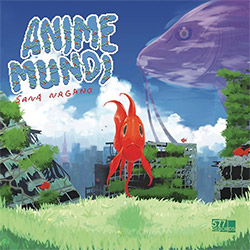
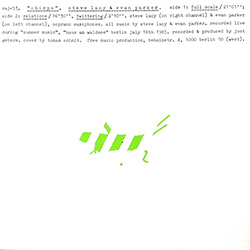
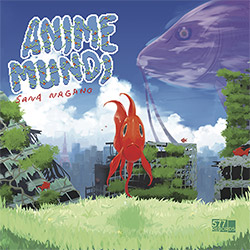

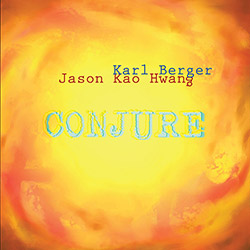




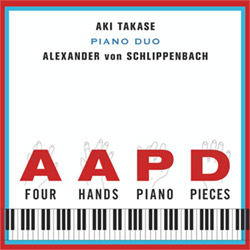
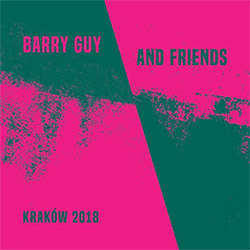
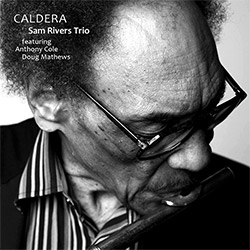

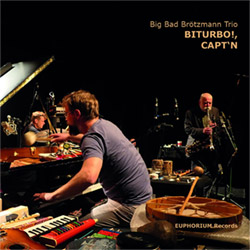



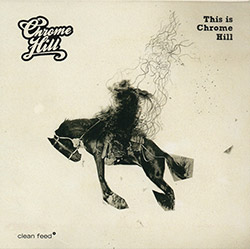
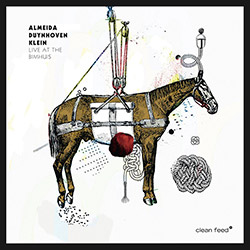




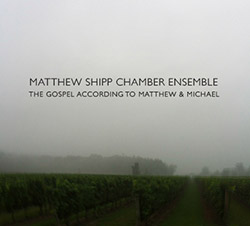

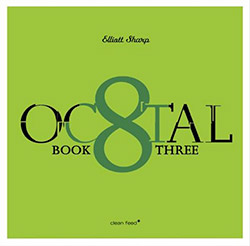














![Barker / Parker / Irabagon: Bakunawa [VINYL]](https://www.teuthida.com/productImages/misc4/35533.jpg)
![Blaser, Samuel / Marc Ducret / Peter Bruun: Dark Was The Night, Cold Was The Ground [VINYL 10-inch]](https://www.teuthida.com/productImages/misc4/35492.jpg)










![Warren, Kenny (Warren / Hoffman / Ellman): Sweet World [VINYL]](https://www.teuthida.com/productImages/misc4/35451.jpg)


![Blake, Ran / Dave Knife Fabris: Live Amsterdam 2006, First Visit [CD + POSTCARDS]](https://www.teuthida.com/productImages/misc4/35275.jpg)
![Sanna, Claudio: Compositori Sardi Contemporanei II [2 CDs]](https://www.teuthida.com/productImages/misc4/35317.jpg)












![Nevai, Nandor: <<The PRICE of FRONTIER>> Book 1: FULK [BOOK + 4 CDs]](https://www.teuthida.com/productImages/misc4/35464.jpg)
![Nevai, Nandor: <<The PRICE of FRONTIER>> Book 2: MARTIAL [BOOK + 4 CDs]](https://www.teuthida.com/productImages/misc4/35465.jpg)
![Nevai, Nandor: <<The PRICE of FRONTIER>> Book 3: JASSOM [BOOK + 4 CDs]](https://www.teuthida.com/productImages/misc4/35466.jpg)
![Nevai, Nandor: <<The PRICE of FRONTIER>> Book 4: HARD-WON [BOOK + 4 CDs]](https://www.teuthida.com/productImages/misc4/35467.jpg)






![DNS: Taking Big Bites Of The Khandas Three Cafes Deep [2 CDs]](https://www.teuthida.com/productImages/misc4/35334.jpg)




![Cleaver, Gerald: The Process [VINYL]](https://www.teuthida.com/productImages/misc4/34966.jpg)




![Alva Noto: HYbr:ID II [VINYL 2 LPs]](https://www.teuthida.com/productImages/misc4/35201.jpg)

![Baron, Derek / Luke Martin: Distinct and Concealed [CASSETTE + DOWNLOAD]](https://www.teuthida.com/productImages/misc4/35079.jpg)

![Lyle, Erica Dawn : Colonial Motels [CASSETTE + DOWNLOAD]](https://www.teuthida.com/productImages/misc4/35080.jpg)







![Alva Noto: HYbr:ID III [VINYL 2 LPs]](https://www.teuthida.com/productImages/misc4/35011.jpg)
![Kubisch, Christina / Trondheim Voices: Stromsanger 2022 For Six Voices And Electromagnetic Waves [VINYL]](https://www.teuthida.com/productImages/misc4/34628.jpg)








![Zurria, Manuel: Fame di Vento [3 CDs]](https://www.teuthida.com/productImages/misc4/35167.jpg)

![Granberg, Magnus / Nattens Inbrott / Skogen: Holde Traume, Kehret Wieder! [2 CDs]](https://www.teuthida.com/productImages/misc4/35038.jpg)
![Frey, Jurg: Outermost Melodie [2 CDs]](https://www.teuthida.com/productImages/misc4/35039.jpg)

![Pavone, Jessica: Reverse Bloom [VINYL]](https://www.teuthida.com/productImages/misc4/34895.jpg)




![Modney (Modney / Wooley / Gentile / Roberts / Pluta / Symthe / ...): Ascending Primes [2 CDs]](https://www.teuthida.com/productImages/misc4/34852.jpg)








![Elephant9 with Terje Rypdal: Catching Fire [VINYL 2 LPs]](https://www.teuthida.com/productImages/misc4/35355.jpg)
![Deerlady (Obomsawin, Mali / Magdalena Abrego): Greatest Hits [VINYL]](https://www.teuthida.com/productImages/misc4/34876.jpg)




![Haino, Keiji: Black Blues [2 CDs]](https://www.teuthida.com/productImages/misc4/35109.jpg)



![Surplus 1980: Illusion of Consistency [CD]](https://www.teuthida.com/productImages/misc4/35069.jpg)
![Staiano, Moe: Away Towards the Light [VINYL + DOWNLOAD]](https://www.teuthida.com/productImages/misc4/35037.jpg)




![Caveira (Gomes / Sousa / Abras / Ferrandini): Ficar Vivo [VINYL]](https://www.teuthida.com/productImages/misc4/34643.jpg)
![Gregg, J. J. / David Van Auken: Lunar Prairie [CD w/ DOWNLOAD]](https://www.teuthida.com/productImages/misc4/34611.jpg)

![Coultrain: Mundus [VINYL]](https://www.teuthida.com/productImages/misc4/32439.jpg)
![Mattin: Songbook #6 [VINYL]](https://www.teuthida.com/productImages/misc4/27317.jpg)
![Punkappella: Wake Up [7-inch VINYL]](https://www.teuthida.com/productImages/misc4/17519.jpg)
![Residents, The: WARNING: UNiNC.: Live And Experimental Recordings 1971-1972 [VINYL 2 LPs]](https://www.teuthida.com/productImages/misc4/31521.jpg)
![Coultrain: Phantasmagoria [VINYL]](https://www.teuthida.com/productImages/misc4/30142.jpg)
![Lennon, Sean Ono: Asterisms [VINYL]](https://www.teuthida.com/productImages/misc4/34517.jpg)

![Rotem Geffen: The Night Is The Night [VINYL]](https://www.teuthida.com/productImages/misc4/34631.jpg)
![Coley, Byron: Dating Tips for Touring Bands [VINYL]](https://www.teuthida.com/productImages/misc4/17906.jpg)

![Lost Kisses: My Life is Sad & Funny [DVD]](https://www.teuthida.com/productImages/misc4/lostKissesDVD.jpg)